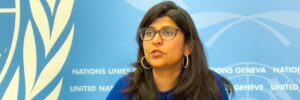
TORONTO – Fake news, testimonials and personal narratives used to suggest a distorted interpretation of reality and social networks used as a means of spreading false information: this and much more is discussed in the report drawn up by the Council of Canadian Academies, a non-profit organization that examines complex scientific topics of public interest. Including Covid-19, as in the case of “Fault Lines” (Expert Panel on the Socioeconomic Impacts of Science and Health Misinformation), a work supported by a gigantic bibliography (over sixty pages of references) from which it clearly emerges that misinformation on the coronavirus has done great damage to Canadian society, contributing to more than 2,800 deaths and an estimated $30 million in hospital visits and intensive care. Deaths that could have been avoided and money that could have been spent elsewhere. →



